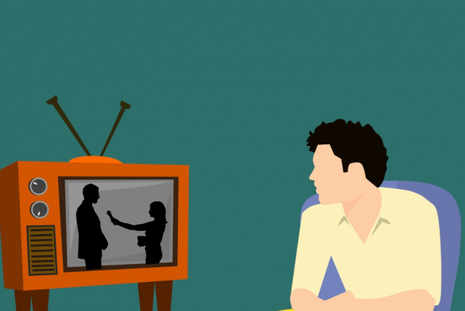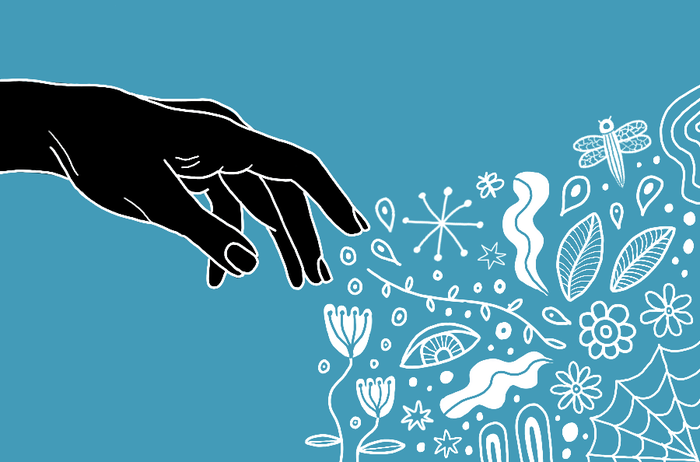Pointless? On our obsession with quiz shows
Lifestyle columnist Ewan Martin considers how television quiz shows have a subtly reassuring presence in our lives.

We all like to be trivial, and who among us can resist an opportunity to show what we know?
It’s important to us that we can compete in conversations about the news, that we can respond confidently to cultural references and that we have opportunities to shed our facts and figures upon our friends and family members. The need to understand and present ourselves as ‘in the know’ is inextricable from our need to be included in the communal life of our people and our species. Our daily chit-chat is therefore fraught with little irrepressible references to the things we are proud of knowing.
Perhaps it’s a lingering insecurity from our hunter-gatherer days, when to be of use meant bringing things in from the ‘great unknown’ surrounding our community. In the modern great unknown prowl no bears or wolves, but rather the unreckonable hurly-burly of information that makes up our temporal, geographical, social and political circumstances, as well as the spectral predator called Forgetting. Ignorance constricts our territorial claim to the world around us, while Forgetting preys upon the territory we hold in our minds and our memories, in our inner world, in ourselves.
By carrying in a rabbit or mapping a nearby river, primitive mankind claimed some small region of the unknown’s territory or re-asserted ownership over its own. Today, we efface the unknown by proving that we are informed about our global and historical situation, and that we maintain a mastery over our memory — the great unknown within. In this defiance, we show ourselves to be useful to our human community, belittled as it is by a vastness of proceedings and the erasures of time.
How this relates to our quizzical viewing habits
The most recognisable manifestation of this tribal mentality is the TV quiz show. The cavernous studios, huddled at the edges with rows of shadowed observers, are actually unnervingly reminiscent of primitive rituals; not to mention each contestant’s faint whiff of sacrificial offering.
“Quiz shows have a presence in our culture that is as fixed and frequent as any other ritual, if not more so”
Heebie-jeebies aside, quiz shows have a presence in our culture that is as fixed and frequent as any other ritual, if not more so. Ever since the emergence of public broadcasting, they have enjoyed a permanent place in the living rooms of the masses and have allowed people to prove their knowledge inconspicuously and inoffensively in the company of others. Distracted by scrutinising the contestant, each audience member really makes judgements about themselves by comparison. When watching alongside family or friends, these comparative judgements extend to the other people in the room. The elder brother burns with shame after blurting out ‘Botswana’; his younger sister glows with pride — the savant of the settee, she has correctly whispered ‘Mozambique’.
That there is a show for each level of ability (from Tipping Point to Only Connect) speaks for the fact that these shows don’t so much as appeal to the clever, as much as they appeal to everyone who likes to feel clever. It seems all of us like to feel clever, so the appeal is universal.
“And yet, these programmes are generally understood to be a guilty pleasure. Why ‘guilty’?”
And yet, these programmes are generally understood to be a guilty pleasure. Why ‘guilty’? Because we watch them to fill those idle stretches before or after dinnertime, say nasty things about the contestants, and get a questionable amount of self-satisfaction from each answer we get right.
So, we come to the million-pound question: is Alexander Armstrong earning his pay by doing a genuine public service, or is he a false prophet — a crooked shepherd leading his flock deeper into the valley of vanity with every passing day?
Are quiz shows a questionable form of entertainment?
Well, there are greater and lesser prides to be felt when answering a quiz show question correctly. Have you convinced yourself that your stab in the dark was an educated guess? Do you feel prouder because you believed Bradley Walsh when he told the contestant it was ‘a tricky one’? Are you privately gleeful to have outperformed your Mum in her specialist subject? Maybe it’s time to take a break. Phone a friend, eh?
On the other hand, quizzes can reinforce our confidence in our passive and active accumulation of knowledge. To know, really know, the answer to a question about something seldom thought about is an empowering moment which gives us proof that our memory is holding more than we could ever realise. Quiz shows, if nothing else, provide nightly retrospectives into the history of the audience’s nation, world, and personal education. We gather around them to merrily exorcise that haunter, Forgetting, and reclaim parts of the unknown as our own.
To know the answer to a question about something often thought about, or intently researched, provides a different kind of affirmation. Once a person has passed through their formal education, there is no inevitable incentive for making efforts to become informed. Many people reach their thirties still retaining vague educational ideals from their schooldays, but lacking the examination and assessment, reward or punishment needed to put a decisive value on whatever they learn.
‘Knowledge for knowledge’s sake’ is an ideal which becomes difficult to pursue alongside a working life and other personal responsibilities, and there is a portion of our population who are picking up prize-winning books, reading articles, and watching the news, half-enthusiastically, half-remembering why such things are important to do in the first place.
Curiosity may wane while shames and fears about ignorance and forgetting encroach. Too often wanting to be ‘in the know’ stems from anxieties about being excluded, or about losing the fight against time. The bright lights of the Pointless studio invite us back towards sharing in, night after night, the victory inherent in all knowledge, regardless of its type, quantity, or origin.
We live in darkness! And yet — as quiz shows remind us — through the thrill of knowing, we can glimmer in spite of it.
Here’s to many more trivial pursuits.
 News / Clare Hall spent over £500k opposing busway 24 December 2025
News / Clare Hall spent over £500k opposing busway 24 December 2025 Comment / The ‘class’ of Cambridge24 December 2025
Comment / The ‘class’ of Cambridge24 December 2025 News / Caius mourns its tree-mendous loss23 December 2025
News / Caius mourns its tree-mendous loss23 December 2025 News / Girton JCR publishes open letter expressing solidarity with Palestine25 December 2025
News / Girton JCR publishes open letter expressing solidarity with Palestine25 December 2025 Comment / Yes, I’m brown – but I have more important things to say22 December 2025
Comment / Yes, I’m brown – but I have more important things to say22 December 2025











